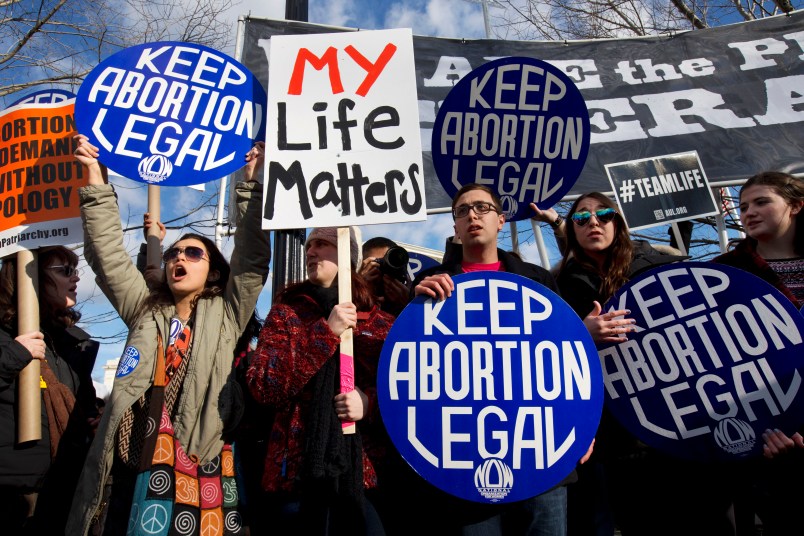UPDATE: June 22, 2015, 3:31 PM EDT
NEW ORLEANS (AP) — The administrator of a northwest Louisiana abortion clinic testified Monday that it probably would close if the state is allowed to enforce a law requiring doctors who perform the procedure to be able to admit patients to a hospital within 30 miles of their clinics.
Kathaleen Pittman, of Hope Medical Group in Shreveport, testified that the doctor who does 70 percent of the abortions there has not been able to get admitting privileges to nearby hospitals. The other doctor, who does have admitting privileges, probably would be unwilling to continue as the only physician on staff, Pittman said.
She said both doctors have agreements with local hospitals to take patients from Hope in emergencies. She also testified that most patients live closer to hospitals outside Shreveport and would go to those hospitals if they had an emergency after returning home.
Judge John deGravelles has set aside six days for the trial in Baton Rouge.
Lawyers for both sides have waived opening and closing statements, said Kyle Duncan, a Washington attorney representing the state. DeGravelles has taken other steps to speed the trial, such as letting attorneys make blanket objections to certain types of testimony so they don’t have to take time by objecting to each instance.
Clinic doctors will testify with a screen hiding them from spectators. The doctors sued anonymously, as “John Does,” and a court order has made virtually all information about the clinics confidential. That includes any details about the clinics’ staff, physicians and patients.
The law is among hundreds of abortion restrictions passed around the country in the past several years. Lawyers for the state of Louisiana say this one was written to protect women. Opponents say it was meant to make it essentially impossible to get abortions.
Only one of the six doctors at Louisiana’s five abortion clinics — an obstetrician who also does a few abortions — “unequivocally” would be able to meet the law’s requirements, attorney Ilene Jaroslaw said. She said the others all applied for admitting privileges before the lawsuit was filed in August but have not received them.
Louisiana does not require doctors doing any other sort of procedures to have admitting privileges at a local hospital, the lawsuit says. “Physicians perform similar, and often higher risk, outpatient procedures in their offices without admitting privileges,” it says.
Duncan has asked deGravelles to throw out claims that the law was passed to keep women from getting abortions. Duncan says that claim was erased by a federal appeals court ruling for a more stringent Texas law.
It was a ruling that largely upheld Texas’ abortion law, which required doctors to have admitting privileges at a nearby hospital and required abortion clinics to meet hospital standards.
The Louisiana clinics’ response, filed Tuesday, said the 5th U.S. Circuit Court of Appeals’ ruling on Texas is not final and will be appealed.
“We’re confident that we’ll be able to present all our evidence,” Jaroslaw said.
David Brown, a Center for Reproductive Rights attorney who is working on both the Texas and Louisiana lawsuits, said attorneys will ask the nation’s highest court sometime this summer to consider the Texas ruling.
“We won’t necessarily know by July whether the Supreme Court will review the case or not. But we’ll know at least whether the 5th Circuit ruling in the Texas case will be stayed” by the high court or the full 5th Circuit, he said.
The 5th Circuit sets law for Texas, Louisiana and Mississippi unless the Supreme Court overturns it.
Copyright 2015 The Associated Press. All rights reserved. This material may not be published, broadcast, rewritten or redistributed.






